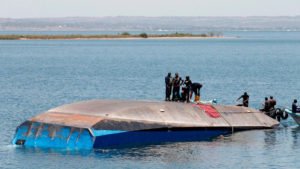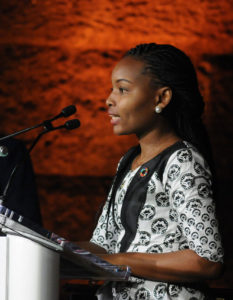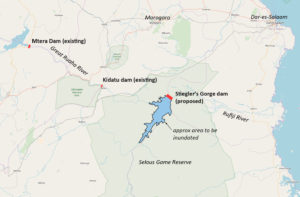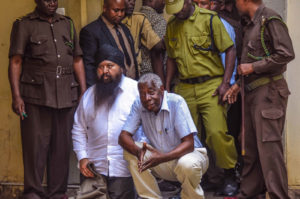by Ben Taylor
Ten children have been reported murdered in Njombe region over the space of a few weeks, with their bodies mutilated. This includes three children, aged five, eight and eleven years, from a single family. A number of arrests have been made.
Regional authorities in Njombe confirmed the killings in late January, saying police had found bodies of children previously reported missing.
Deputy Health Minister, Dr Faustine Ndugulile, spoke to CNN about the case. “We have found ten bodies, and most of their private parts and teeth had been removed,” he said. “It is very sad because they are children and they don’t deserve to be used like this,” Ndugulile added.
He noted that it is believed that the murders are linked to witchcraft practices, “because that is the trend for such crimes, where herbalists ask people to get these human parts for money rituals.”
“We want to identify the perpetrators, but our focus is to educate the traditional practitioners in the area quickly and those in surrounding communities on the need to stop these acts,” said the Deputy Minister.
The United Nations issued a statement expressing its “deepest condolences” to the families and communities. “The UN joins the Government of the United Republic of Tanzania in condemning these heinous acts. As the UN, we stand ready to support the Government in their efforts to address the issue,” said Alvaro Rodriguez, UN Resident Coordinator in Tanzania. “Additionally, we call upon all stakeholders to join hands to ensure that homes, schools and communities are safe spaces for children.”
In at least one case, it has been reported that local residents took the law into their own hands, killing four people they believed to be responsible for the murder of a seven-year-old girl.
When events in Njombe made both national and international headlines at the end of January, the police and political response to the case stepped up sharply. The Speaker of Parliament, Mr Job Ndugai, instructed the government to issue a statement on the situation in Njombe.
The Chief of Defence Forces (CDF), General Venance Mabeyo, went to Njombe where he held closed-door talks with members of the defence and security committee in Njombe on how to contain the killings as well as with members of a special police unit that has been deployed to investigate and arrest those responsible for the killings. He called for calm among Njombe residents as authorities drill down to the root cause of the killings and bring the culprits to book. “There is no reason to panic. This is not yet a national issue because it involves individual families and the reasons behind the killings are typical family matters,” he said.
General Mabeyo told journalists shortly after the meeting that though the occurrences were still at family level, they have stained the image of Njombe to the rest of Tanzania and beyond, hence he need to stem them as a matter of urgency.
On February 4, Njombe Regional Police Commander (RPC), Ms Renata Mzinga, confirmed that 28 suspects were being held for questioning by the police. “We have uncovered the network of people who have been involved in these killings. In partnership with a special team from the Police Headquarters in Dar es Salaam, we will hunt them wherever they are. So far, we have arrested 28 people, including businesspeople, traditional healers and other ordinary citizens,” she said.
On February 12, three suspects were brought before the Njombe Resident Magistrate’s Court to face various murder charges. Reading the charge sheet, state attorneys said the accused killed three children from the same family. One of those charged is reportedly a cousin of the murdered children.
In early March, Police announced that they had arrested 65 “witchdoctors”, or traditional healers, in connection with the killings. The inspector general of police, Simon Sirro, has ordered that every traditional healer obtain a licence.
There is a belief among some people in Tanzania, and neighbouring countries, that using human body parts in rituals can bring wealth and good luck. A statement issued by 25 Tanzanian organisations, meanwhile, urged their compatriots to give up dangerous traditional beliefs. “We call upon the government to reinforce control over activities by traditional healers and to punish those behind human rights violations,” the organisations added.
A few weeks later, in early April, President Magufuli made a long-scheduled visit to Njombe, to open a new tea factory. At a public meeting, he spoke about the killings, expressing his deep sadness.
He then fired the Officer Commanding the District (OCD) for Njombe, Sifael Pyuza, accusing him of sleeping on the job end of last year and early this year.
Njombe RPC Renata Mzinga had been relieved of her responsibilities and transferred. The President, therefore, wondered out loud why the OCD of Njombe had not been similarly taken to task. “Is the OCD here? He also must leave. We must reach a point whereby we can be accountable for our actions. You must be held accountable,” said President Magufuli.
President Magufuli told Njombe residents to repent for the sins and asked a pastor to pray. “Njombe is a wonderful place but these killings have tainted the region’s reputation. This habit must stop. If there is a pastor here, come forward and pray so that people can repent,” said President Magufuli.
After the prayers, the President abruptly announced a change in his decision over the OCD. “The OCD is now forgiven. We have all been forgiven by God. All Njombe residents must now go and work hard and stop depending on Satan,” said President Magufuli.




